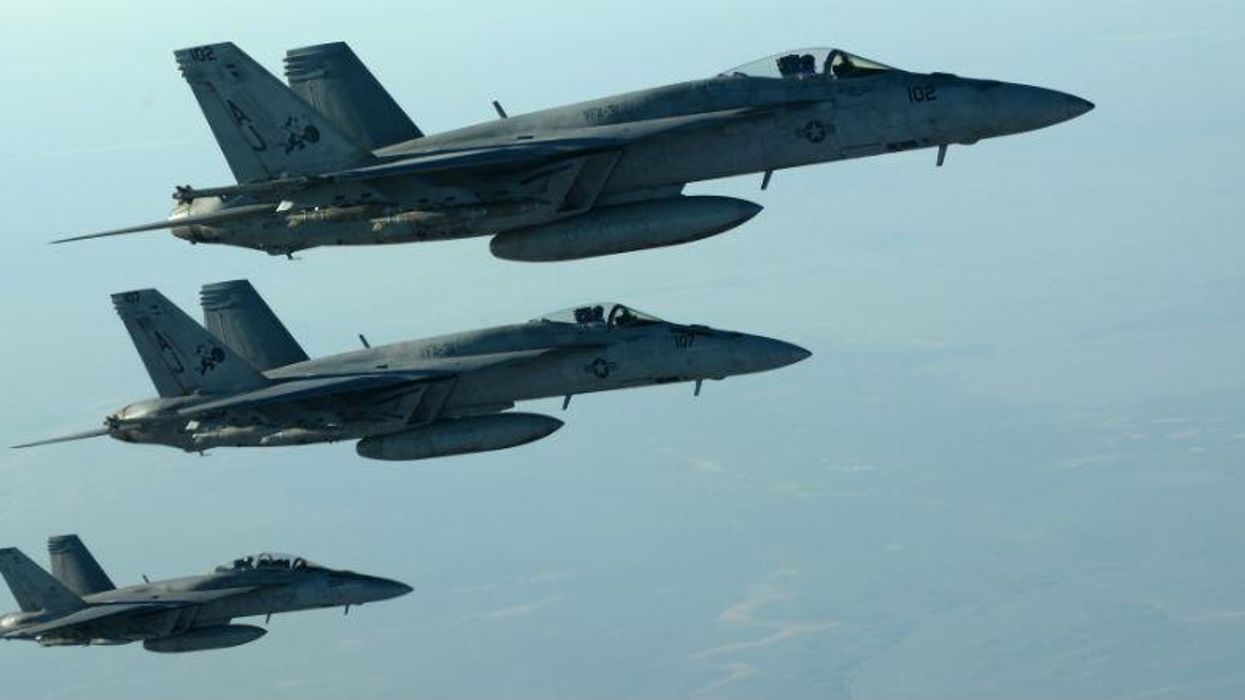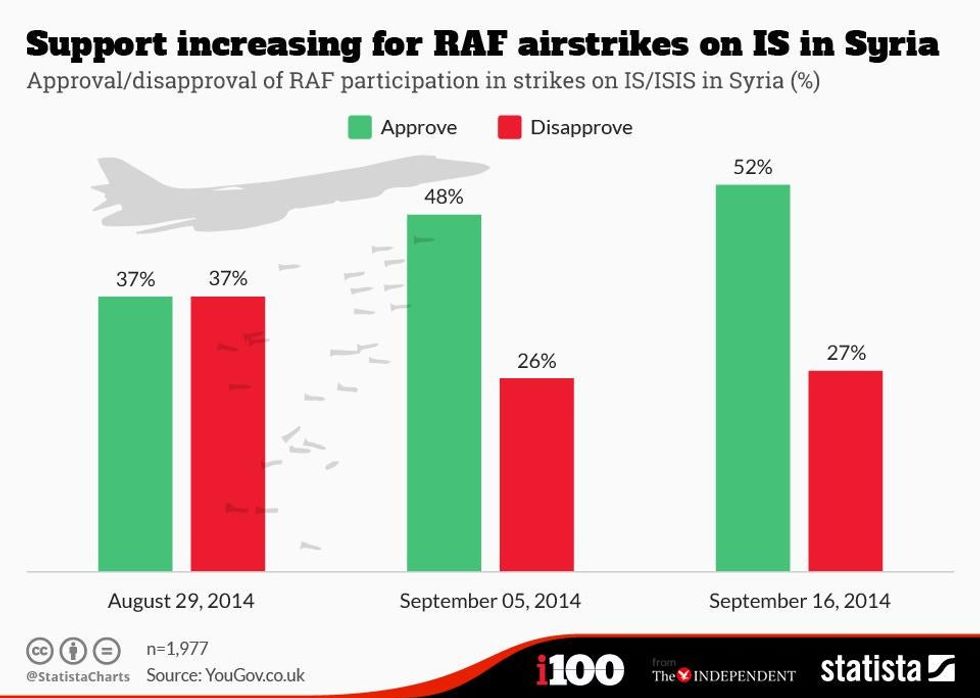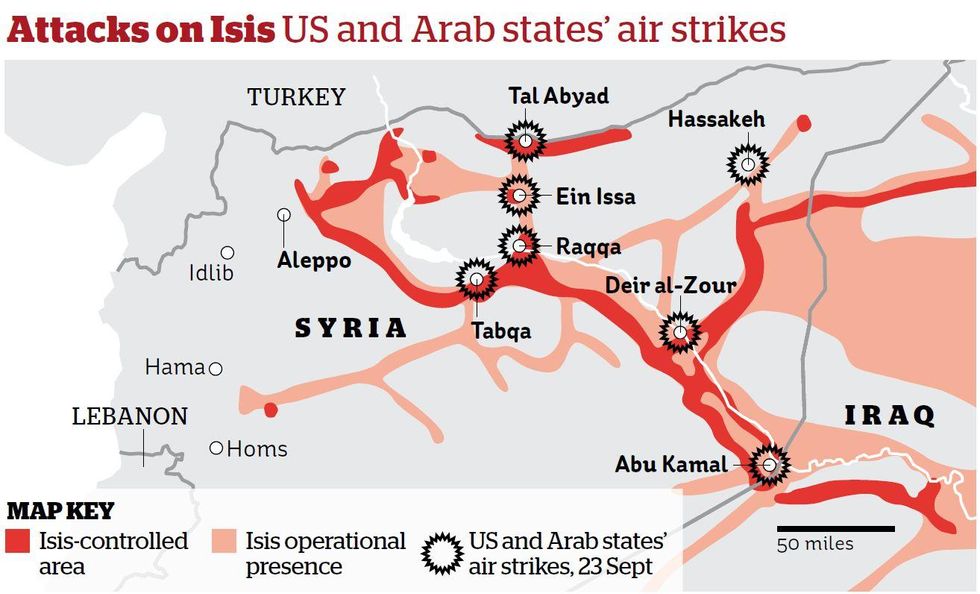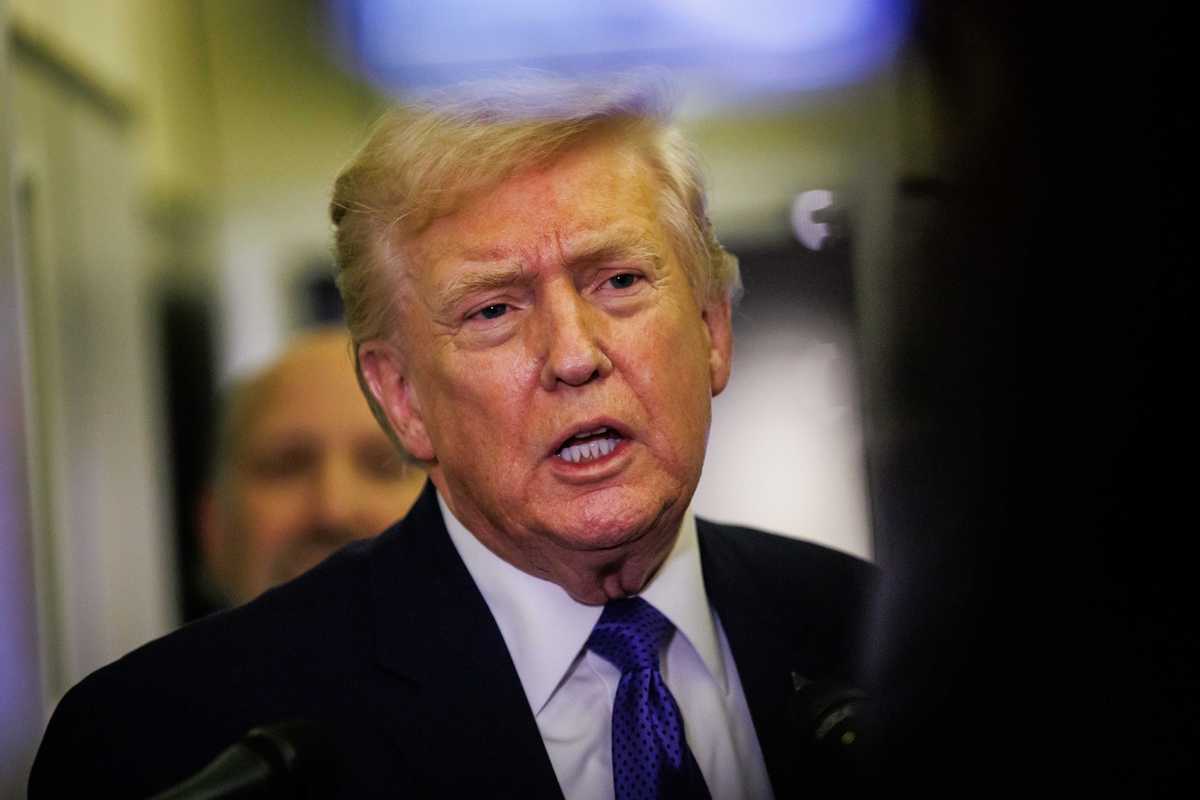News
Evan Bartlett
Sep 25, 2014

A formation of US Navy F-18E Super Hornets over northern Iraq, September, 2014
David Cameron has flown back early from the UN summit in New York and is expected to propose plans for British military involvement in Iraq with the Cabinet on Thursday afternoon.
The prime minister wants air strikes on Isis targets in the country to assist the campaign currently being led by the US with the support of nearly 40 other allies .
Parliament is expected to approve the mission when it meets on Friday with Labour leader Ed Miliband pledging his party's support - a crucial difference to a proposal for strikes against the regime of Syrian president Bashar al-Assad last summer when Labour MPs and a handful of Tory and Lib Dem rebels defeated the government in a parliamentary vote.
Why now?
Isis is seen as an immediate threat to Britain. In an interview with NBC earlier this week, David Cameron was explicit in his motives.
"These people want to kill us," he said.
"They've got us in their sights and we have to put together this coalition... to make sure that we ultimately destroy this evil organisation."
The recent murders of American hostages James Foley and Steven Sotloff as well as that of British aid worker David Haines have also provoked a strong public reaction.
As the above chart from Statista shows, public support for air strikes has steadily increased over the past month.
The participation of a number of other Sunni states in the region - including Saudi Arabia - is also seen as a significant factor.
When will the strikes begin?
If Parliament gives the go ahead then it is thought the RAF could be mobilised as soon as this weekend.
Why are we not getting involved in Syria?
Despite the US and five Middle-Eastern allies carrying out operations in Syria, Britain is unlikely to become involved there.
According to a report in the Guardian , the complex political make-up of Syria and the lack of truly effective opposition ground forces in the country make air strikes more difficult.
The parliamentary vote against taking on Assad's regime last summer also means Cameron would need to propose a new motion in the House of Commons.
What are the drawbacks?
The welfare of British citizens Alan Henning and John Cantlie will be of concern to the government. Isis's previous hostage murders, including that of Frenchman Herve Goudel yesterday by a linked jihadist group, were all said to be acts of retaliation to Western military operations.
Ghaffar Hussein, the managing director of the Quilliam Foundation, has also warned that using such force against Isis in Iraq and Syria means a terrorist attack in Europe or the US becomes "almost inevitable".
"This [these air strikes] is a game changer for Isis. They are being backed into a corner and there’s nothing they can do about it," he told i100 .
"They don't have sufficient anti-aircraft weaponry and won't be able to react in a conventional way. All they have left now, apart from upping the anti in terms of propaganda, is to target terrorist attacks around the world."
This is not to mention the moral and legal questions arising out of such a campaign. And as Andreas Whittam Smith highlights in today's Independent: "badly designed military action could make matters worse rather than better".
Will air strikes be effective?
Despite six weeks of bombing in Iraq, the US has still failed to significantly weaken Isis's grip, according to the New York Times .
The Independent's Middle East correspondent Patrick Cockburn also raises his doubts today, and explains that air campaigns "do not win wars on their own". A point backed up by the Independent's defence correspondent Kim Sengupta.
Will ground troops be sent in?
No, there will be "no boots on the ground", according to Cameron. Interestingly, despite the loss of over 600 British soldiers in Iraq and Afghanistan in the last decade, this poll by YouGov (below) suggests that 29 per cent of the public would support a ground operation, with a further 18 per cent not ruling out the possibility.
What have the leaders said?
Isolation and withdrawing from a problem like Isil will only make things worse. We must not allow past mistakes to become an excuse for indifference or inaction. The right lesson is that we should act – but act differently [to the 2003 Iraq War].
- David Cameron
It [Isis] is a murderous organisation, has taken British hostages, threatens the stability of the region and is therefore a threat to the UK’s national interest.
- Ed Miliband
We are not going to pretend that we are going to do everything, everywhere – we are not even going to pretend that air strikes on their own are the solution – but we are at least going to play a part, provide our bit of the jigsaw to the huge international coalition, which has been assembled against Isis.
- Nick Clegg
More: Why David Cameron's meeting with the Iranian president is so significant
More: Informed but not involved: What do airstrikes mean for the Syrian regime?
More: Who is in the coalition of the willing and what is the coalition of the unwilling
Top 100
The Conversation (0)















